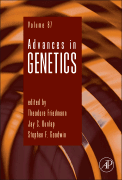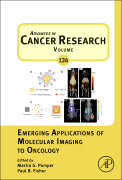While significant scientific breakthroughs can be rewarding in their own right, celebrating critical advances in disease research through award nominations is a wonderful and important tradition within the scientific community. The Lasker Awards, established and endowed in 1945 by the Albert and Mary Lasker Foundation, are one of the most prestigious of these celebrations in the United States, honoring advances made in basic research, clinical medicine, and public service. In particular, they serve not only as an opportunity to applaud the tireless and ingenious efforts of field leaders for their outstanding medical research and service, but also as a call-to-arms those in the biomedical sciences. They are a reminder that there is still much left to understand about a host of diseases and disabilities that affect the lives of so many individuals, within the United States as well as globally. That was indeed the awards’ original purpose, as the Lasker family brought them into existence in the wake of World War II to invigorate both immediate and long-term interest and financial investment from the general public and the U.S. government in cutting-edge medical research.
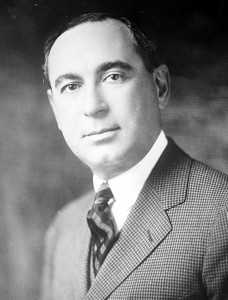
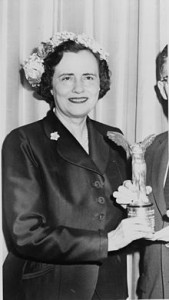
Albert and Mary Lasker were relentless in their efforts to engage the country in the fight for increased research efforts and funding. Together they reorganized and revitalized the group that would become the American Cancer Society (ACS), and they were incredibly instrumental in substantially expanding the activities and finances of the National Institutes of Health throughout their lifetimes. After Albert’s death in 1952 due to colon cancer, Mary continued to be a passionate patron of medical research, holding leadership positions in a dozen prominent healthcare societies and organizations—including the ACS and Planned Parenthood Foundation— and contributing to the implementation of President Richard Nixon’s War on Cancer. Her decades-spanning commitment to medical research advocacy and philanthropy earned her the Presidential Medal of Freedom in 1969 and the Congressional Gold Medal in 1989. Upon her death, she left over $10 million dollars to the Lasker Foundation, ensuring that her legacy of championing disease research and public health would continue.
The tenacity and passion of Albert and Mary Lasker for medical research and outreach are reflected in the recipients of their foundation’s awards, as Lasker laureates are exceptional leaders in their fields. Indeed, over eighty Lasker Award recipients have also gone on to be awarded a Nobel Prize, forty-four of them within the last three decades. This year’s laureates are no exception to this trend of excellence.
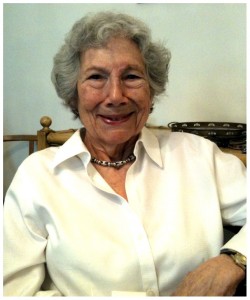
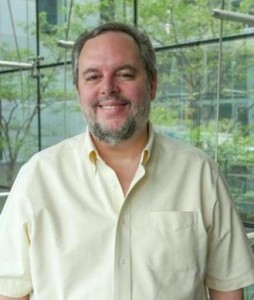
The Albert Lasker Basic Medical Research Award was bestowed upon two recipients in 2015—Dr. Evelyn Witkin of Rutgers University and Dr. Stephen Elledge of Brigham and Women’s Hospital—for advances made in understanding bacterial and eukaryotic DNA damage repair. Dr. Witkin’s work began in 1944 when, at Cold Spring Harbor Laboratory, she uncovered a radiation-resistant strain of Escherichia coli while investigating the effects of ultraviolet light on impeding bacterial cell division. One summer’s worth of work ignited an entire career, as she pursued studying DNA mutagenesis and subsequently DNA damage repair over numerous decades. Her work, in conjunction with that of Dr. Miroslav Radman, led to the discovery and characterization of the SOS response, a broad, error-prone DNA damage response in bacteria that promotes both repair and mutagenesis and is mediated by the proteins RecA and LexA. Like Witkin, Dr. Elledge has made astounding impacts in the biomedical research community due to his work on DNA damage response mechanisms, but in the eukaryotic system. Initially he studied how DNA synthesis and damage repair pathways interacted in yeast, and these findings eventually led him to investigations regarding the ATM-mediated damage response. Significantly, he discovered how ATR detects DNA damage and initiates the subsequent response cascade; he continues to investigate the complexity of these pathways, as well as a host of other topics related to DNA and cell cycle maintenance.

Winner James Allison. (Lasker Foundation)
Dr. James Allison of the University of Texas MD Anderson Cancer Center was bestowed with the Lasker-DeBakey Clinical Medical Research Award this year for his development of a monoclonal antibody that stimulates tumor detection by the immune system. His work delineating the role of the protein receptor CTLA-4 in T-cell proliferation and as an antagonist to CD28-mediated T-cell activation led him to cancer immunotherapy research. He proposed that blocking CTLA-4 suppression of T-cell response would allow the immune system to detect tumors it previously ignored. Initial success in mouse models—where an anti-CTLA-4 antibody spurred tumor rejection—led Allison to pursue advancing this treatment to clinical trials. Over a decade later, the human anti-CTLA-4 antibody, termed ipilmumab, was approved by the FDA in 2011 for treatment of late-stage melanoma. This type of immune therapy is a radical one, as it triggers a general immune response instead of targeting tumor-specific markers, and thus has promising potential to be a treatment option for multiple types of cancer.
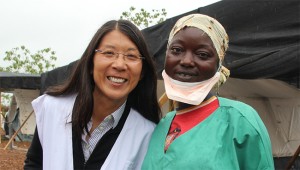
(P.K. Lee/Doctors Without Borders)
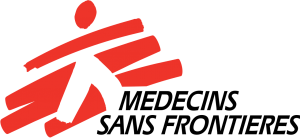
In 2015, the recipient of the Lasker-Bloomberg Public Service Award was not an individual, but rather an organization. Médecins Sans Frontières (MSF, also known as Doctors Without Borders) was commended for their tremendous response to the Ebola outbreaks in Africa last year. Members of MSF were on the ground from day one, serving as leaders in disease treatment and containment as well as pillars of patient and community support despite facing immense challenges on a local, national, and global scale. Even after the most significant outbreaks subsided, MSF continued their efforts through advocacy for programs and support that will aid and improve response efficacy to future epidemics.
No doubt this year’s award laureates will continue to change the face of medicine in the years to come and also inspire future medical researchers and advocates to do the same.


